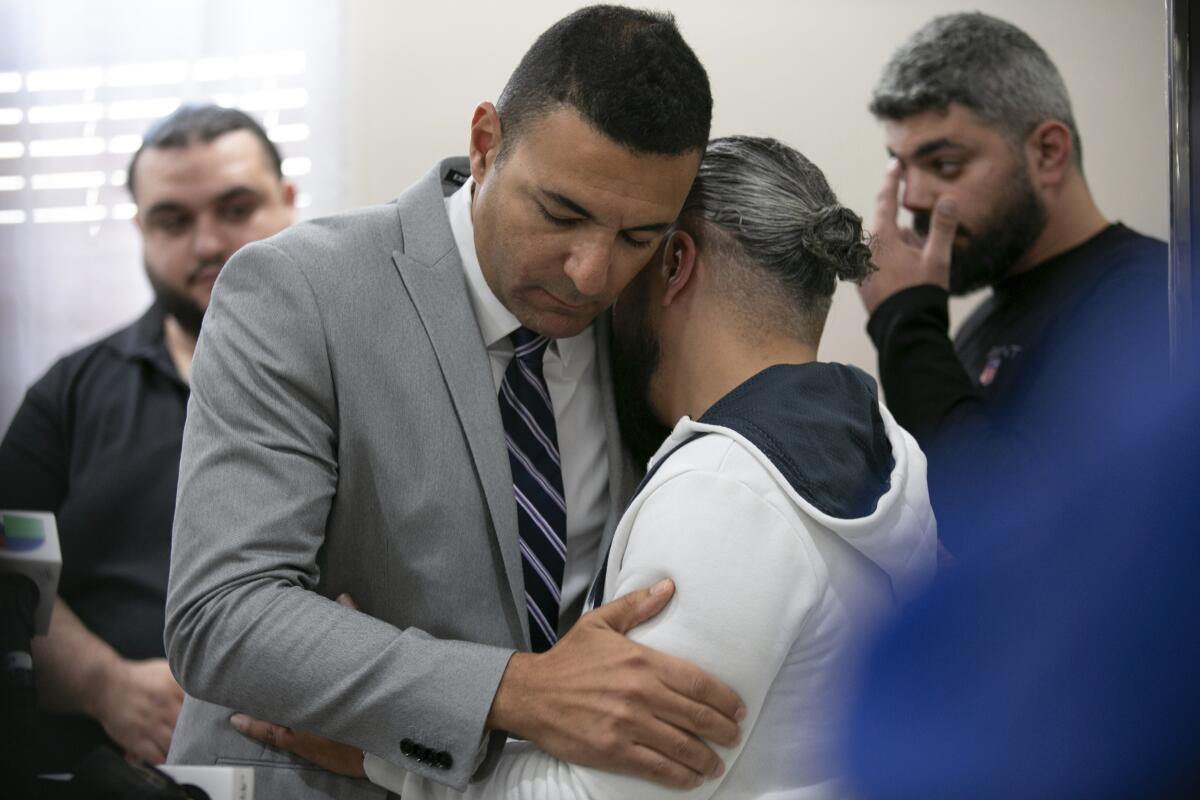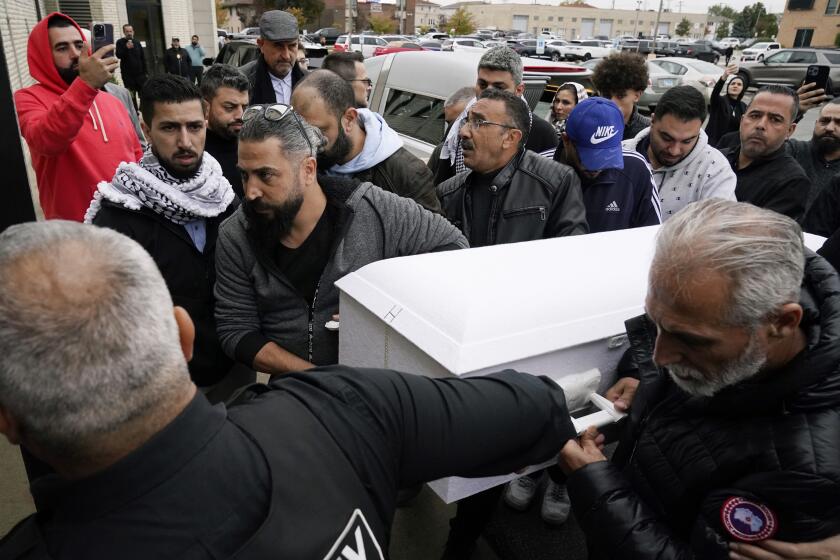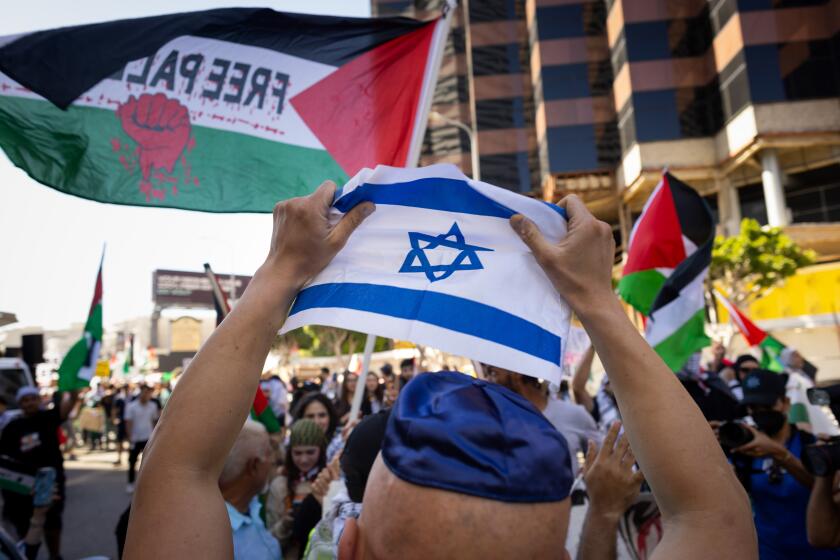Editorial: The rising tide of hate crimes can’t be ignored

- Share via
It’s hard to remember a time that has felt more tumultuous. We’ve barely arrived on the other side of a pandemic that both put the world on pause and divided our country. A band of mostly white hooligans swarmed our Capitol building, attempting to overthrow a legitimate presidential election on behalf of a man who now is charged with 91 felonies, and yet inexplicably has a chance of being reelected president next year.
And on Oct. 7 an attack by Hamas that killed about 1,200 people, including children and the elderly, was followed by ongoing retaliation against Hamas by the Israeli government that has killed more than 10,000 people in Gaza, according to the health ministry there, many of them children and the elderly.
Advocacy groups are tracking increased discrimination and attacks against Arabs, Palestinians and Muslims in the U.S. as the death toll in Gaza mounts.
These horrific events are now also linked to rising numbers of threats and hate crimes in this country.
Every day seems to bring a story of yet another violent or ugly incident. A young Palestinian boy brutally stabbed to death in Illinois. An Arab Muslim student at Stanford University injured by a hit-and-run driver — the same university where Jewish students allege that an instructor made them stand in a corner of the classroom while he berated them about Israel. Swastikas popping up at middle and high schools and synagogues. Threats and harassment against American Muslims are increasing as are antisemitic threats and vandalism. In an ironic twist, a woman was accused of purposely driving her car into the building of an antisemitic group because she mistakenly thought it was a school for Jewish children.
In some ways, this increase in hate-driven incidents is not an anomaly. The number of hate crimes has been rising steadily before this.
A March FBI report found that the number of hate crimes reported in 2021 had increased by 11.6% over the previous year. In 2022, they rose again. Attacks on Black people made up the majority of hate crimes, according to the FBI. But incidents targeting Latinos and members of the LGBTQ+ community also rose. The number of antisemitic attacks increased by 25% from 2021 to 2022.
Our close connection does not mean we agree on all aspects of the catastrophic situation in the Middle East. But the path to peace starts by not selectively grieving only those with whom we share religion or national origin.
Horrific things will always happen. But somewhere along the way, we lost the ability to get through them without erupting into hate-fueled incidents against innocent people. Remember the attacks against Asians during the COVID pandemic? Or the virulence unleashed toward Muslims in the wake of 9/11? The FBI reported that anti-Muslim attacks soared from 28 in 2000 to 481 in 2001.
Of course, hatred of marginalized groups has ignited violence throughout history. But the rise in hate incidents over the last two decades has taken on a discouraging pattern: When something traumatic happens, a signal seems to go off that it’s time to unleash violence or threats against one another.
The words and actions of our leaders can either calm or fuel such responses. It’s impossible to ignore the role that former President Trump played in the rise of hate crimes in the U.S. His ugly rhetoric against Muslims, undocumented immigrants and the Black Lives Matter movement accomplished two things: It gave a stamp of approval to those who would flout the norms of civility and paved the way for a disturbing rise in white nationalism. His repeated reference to COVID-19 as the “Chinese virus” was linked to a near-immediate rise in anti-Asian hashtags and violence against Asians ensued. His refusal to accept the valid results of the 2020 presidential election led to the Jan. 6 attack on the Capitol by a mob of white supremacists who felt entitled to try to bring down our way of government.
The hatred is compounded exponentially by social media, which allows people who might never have voiced ugly attitudes — at least not publicly — to reach many thousands of people. It provides a place for hate groups to congregate and recruit, spreading lies that become memes that become accepted as truth.
Instead of binding together in threatening times, we have become a society that looks for a group to blame, and then spreads ugly lies and insults about them.
There is no cure for this. But it is clear that words matter. This is a country that guarantees extraordinary freedom of speech, and that right must be guarded. The only valid way to fight harmful speech is with better speech. People with more caring minds and better understanding must at least call out harmful rhetoric whenever they encounter it. The voices that reject mindless hatred must be louder than the ones embracing it.
More to Read
A cure for the common opinion
Get thought-provoking perspectives with our weekly newsletter.
You may occasionally receive promotional content from the Los Angeles Times.












